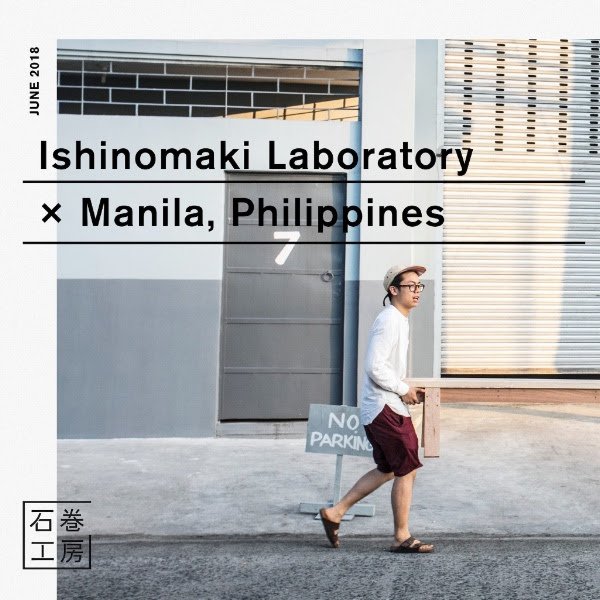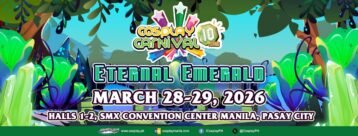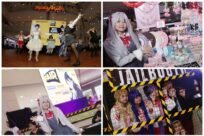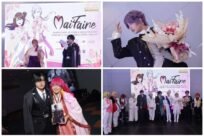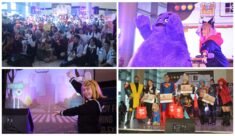
Ishinomaki Laboratory Explores Community Building and Civic Engagement in Manila with DIY (Do-It-Yourself) + Design
Ishinomaki Lab with The Japan Foundation Manila will be presenting the DIY Designers’ Talk on June 5 and the DIY + Design Exhibition on June 7 at Artelano 11 in Pasay . Both events are free and open to the public. This is the latest series of DIY + Design workshops focused on how creative labor can be used as a tool for creativity, community building, and civic engagement through the design of public architecture and spaces.

Founded in 2011, Ishinomaki Lab started as a simple, public workshop for the local community devastated by the tsunami triggered by the Great East Japan Earthquake. Along with running DIY workshops for residents affected by the disaster, Ishinomaki Lab participated in restoring and renovating local shops–as well as creating spaces where people could reimagine the future of the city together.

Two years ago, the Japan Foundation, Manila invited Ishinomaki Lab to Bohol, Philippines to conduct DIY + Design workshops with the fishing community affected by a devastating earthquake. Last year, they returned to Manila to work with the creative communities of Escolta and Kapitolyo on urban revitalization.

This year they continue engaging creative professionals, as well as the next-generation of designers and architects, through another series of DIY + Design workshops, focused on how creative labor can be used as a tool for creativity, community building, and civic engagement through the design of public architecture and spaces.

This year’s DIY + Design Workshop with Ishinomaki Lab finds inspiration from Japanese-American sculptor Isamu Noguchi. Noguchi was interested in how art and design (through woodworking and ceramic workshops) could foster “good will” within communities and engender faith in democracy.
Noguchi also explored design in the public realm, designing a number of public spaces where visitors could physically and actively engage with art through playgrounds and stand-alone play structures. While few were realized, Noguchi’s public works continue to inspire contemporary designers to consider play as a strategy for building community and stimulating creativity in the everyday.
Ishinomaki Lab, since its founding, has been concerned with how through DIY + Design, a community can not only recover and rebuild, but empower them as individuals to imagine and build better neighborhoods and cities. Two years ago, the Japan Foundation, Manila invited Ishinomaki Lab to Bohol, Philippines to conduct DIY + Design workshops with the fishing community affected by a devastating earthquake. Last year, they returned to Manila to work with the creative communities of Escolta and Kapitolyo on urban revitalization.
Keeping with its social mission, Ishinomaki Laboratory continues to hold DIY furniture-making workshops in Japan and around the world, with the goal of giving everyday people the tools to change their surroundings–and in turn their communities–through the idea of DIY. Expanding on Noguchi’s ideas, they hope to use the DIY + Design Workshops to discuss how creative labor can not only embrace activism, but explore it as a tool for creativity, community building, and civic engagement through the design of public architecture and spaces. This year’s program has been organized with partners from De La Salle-College of Saint Benilde’s Hub of Innovation for Inclusion, Habi Education, Artelano 11, Polygon, Makerspace Manila x Collective Restoration, and Prod.jx Artist Community.
Do drop by Artelano 11 for the Designers’ Talk on June 5 and the DIY + Design Exhibition on June 7. Both events are free and open to the public.
5 June 2018, 6PM
DESIGNERS’ TALK
Keiji Ashizawa / Founder, Ishinomaki Laboratory
Tim Wong / Architect, Polygon.ph
Moderater: Dan Matutina
7 June 2018, 5PM
DIY + DESIGN EXHIBITION
A small exhibit featuring Ishinomaki Lab workshops held in the Philippines
between 2016–2018. Refreshments will be served.
Artelano 11
2680 F.B. Harrison Street
Pasay City, Metro Manila 1300
Philippines
ABOUT ISHINOMAKI LABORATORY
Ishinomaki Laboratory began as a workshop for the local community in a coastal area of Ishinomaki, Miyagi, which was devastated by the tsunami triggered by the Great East Japan Earthquake in March 2011. At the beginning, Ishinomaki Laboratory was simply a common utility area for locals to conduct their own work, with lumber and repair materials provided by volunteers, mainly designers in Tokyo. Ishinomaki Laboratory has taken a positive step forward as the world’s first DIY label, with the belief that the potential of DIY and its associated spirit of independence can help broaden horizons. Born with a volunteering spirit, Ishinomaki Laboratory is confident that products made with creativity have the power to move people and change their mindset. The hope is that people around the world rediscover their own innate creativity, and enrich life and society for a more fulfilling future.
ABOUT KEIJI ASHIZAWA
Keiji Ashizawa (born in 1973) lives and works in Tokyo, Japan. After graduating from Yokohama National University in 1995, he spent the first ten years of his career working as both an architect and steel fabricator. The unique skills and experience gained throughout these early years, including a valued understanding of metals, continue to influence his approach to design. In 2011, Ashizawa was awarded a ‘Special Award’ by the Japan Institute of Design for his principal participation in the inception of Ishinomaki Laboratory – a DIY furniture workshop established in Ishinomaki, Japan, after it was devastated by the tsunami triggered by the Great East Japan Earthquake. In 2015, the Ishinomaki stool from Ishinomaki laboratory entered the permanent collection of the Victoria & Albert Museum in London.
ABOUT THE JAPAN FOUNDATION ASIA CENTER
The Japan Foundation is Japan’s principal institution dedicated to carrying out comprehensive international cultural exchange programs throughout the world. The Asia Center, established within the Japan Foundation in April 2014, is a specialized unit with the goal to connect people, expand networks, and develop cultural programs across Asia. Through projects in such diverse fields as music, theater, film, sports, and the visual arts, the Asia Center, in cooperation with the Foundation’s overseas offices, endeavors to nurture among the people of Asia a common awareness for mutual coexistence and understanding as neighbours.
Images courtesy of The Japan Foundation, Manila.







